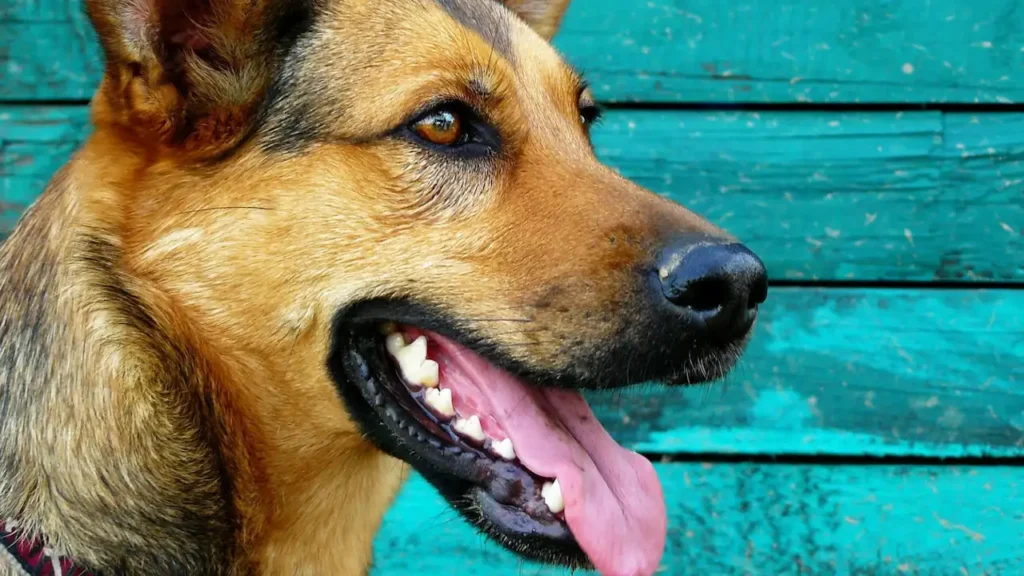Dogs require proper oral hygiene to maintain their overall health. Neglecting your dog’s dental care can lead to serious health issues. It is essential to prioritize this aspect of their routine.
Signs of Dental Problems in Dogs
Being aware of the warning signs can help catch dental issues early. Some common indicators include:
- Persistent bad breath (halitosis)
- Yellow or brown tartar buildup on teeth
- Red, swollen, and bleeding gums
- Difficulty chewing and dropping food
- Excessive drooling
- Pawing at the mouth or reluctance to be touched near the face
Why Dental Care Matters for Dogs
Poor dental hygiene in dogs can lead to a cascade of problems that range from mild discomfort to severe, life-threatening conditions. Many pet owners may not realize how interconnected oral health is with the rest of a dog’s body. Here’s why dental care is so crucial for your furry friend.
Preventing Periodontal Disease
Over 80% of dogs show signs of periodontal disease by the age of three. This staggering statistic highlights just how common dental problems are in our canine companions.
The process begins innocently enough. Bacteria in the mouth form plaque. It is a sticky film that clings to the surface of the teeth. If not removed through regular brushing or chewing, this plaque hardens into tartar. This cannot be removed by simple at-home care.
Over time, tartar buildup leads to inflammation of the gums. It’s known as gingivitis. If gingivitis is left untreated, it progresses into periodontal disease. Periodontal disease affects the gums and the bones and ligaments that support the teeth.
As periodontal disease advances, it causes the gums to recede. This exposes the roots of the teeth. This can result in loose teeth, painful abscesses, and tooth loss.
The pain and discomfort associated with periodontal disease can significantly impact a dog’s quality of life. It is difficult for them to eat, play, and interact normally. Regular dental care is essential to prevent this painful condition.
Avoiding Pain and Discomfort
Dogs are incredibly stoic animals. They often hide their pain until it becomes unbearable. Dental problems can cause intense pain that your dog may not outwardly show. Dogs suffer in silence.
Some subtle signs of dental pain include:
- Reluctance to eat
- Excessive drooling
- Pawing at the mouth
- Behavioral changes
By maintaining good dental hygiene, you can prevent these painful conditions from developing in the first place.
Preventing Systemic Health Issues
The mouth is not an isolated part of the body. It’s intricately connected to the rest of your dog’s system. Bacteria responsible for gum disease can enter the bloodstream through inflamed or bleeding gums. Once in the bloodstream, these harmful bacteria can travel to other vital organs. This leads to serious systemic health issues.
Bacteria from infected gums can settle on heart valves. This can lead to a condition called endocarditis. This infection weakens the heart muscle and impairs its ability to pump blood effectively.
The bacteria can affect the kidneys. They act as filters for the blood. When bacteria from dental infections circulate through the body, they can overwhelm the kidneys. This leads to inflammation and eventual kidney failure.
The liver is another organ that can be affected by the spread of bacteria from dental infections. Chronic inflammation in the liver can lead to scarring.
Studies have shown a strong correlation between poor dental health and heart valve infections in dogs. Maintaining good oral hygiene is not just about protecting your dog’s teeth—it’s about safeguarding their entire body from potentially life-threatening conditions.
Improving Breath and Overall Hygiene
Let’s face it. While dogs are beloved members of the family, their breath isn’t always the most pleasant. Some degree of doggy breath is normal due to the natural bacteria present in their mouths. Excessively bad breath (also known as halitosis) can be a sign of underlying dental issues.
Regular dental care helps reduce the presence of these odor-causing bacteria. Odor free dogs give you a pleasant experience. After all, who doesn’t love snuggling up with their furry friend without worrying about unpleasant odors?
Moreover, good dental hygiene contributes to your dog’s overall cleanliness. A clean mouth means fewer bacteria being transferred to other parts of the body. The bacteria can be transfer to their paws and fur, when they lick themselves. A healthy tooth reduces the risk of skin infections.
How to Care for Your Dog’s Teeth
Let’s explore how to keep your dog’s teeth healthy. Here are some practical steps you can take.
The gold standard for canine dental care is regular brushing. Ideally, you should aim to brush your dog’s teeth daily. Use a toothbrush designed for dogs and a pet-safe toothpaste. Never use human toothpaste. It is toxic to dogs. Start slowly. Allow your dog to get used to the process. Reward them with treats or praise to make it a positive experience.
Dental chews and toys are excellent tools for maintaining oral health. These products help reduce plaque and tartar buildup by encouraging chewing. They scrape away debris from the teeth.
Some dog foods are specifically formulated to promote dental health. Feed them dental friendly diet. These diets contain larger kibble pieces that require more chewing. Additionally, certain additives in dental diets help reduce plaque and tartar formation. Consult your veterinarian to determine if a dental-specific diet is right for your dog.
Even with regular at-home care, professional dental cleanings are essential for maintaining your dog’s oral health. During these procedures, veterinarians can remove tartar buildup, check for signs of disease, and address any issues before they become serious. Most dogs will require a professional cleaning once a year.
Regularly inspect your dog’s mouth for signs of trouble. Check for red or swollen gums, loose teeth, excessive drooling, and difficulty eating. If you notice any of these symptoms, schedule a visit with your veterinarian promptly. Early intervention can prevent minor issues from escalating into major problems.
Dental care is a vital component of your dog’s overall health and happiness. By incorporating effective measures, you can help ensure that your dog enjoys a lifetime of strong teeth and fresh breath.




